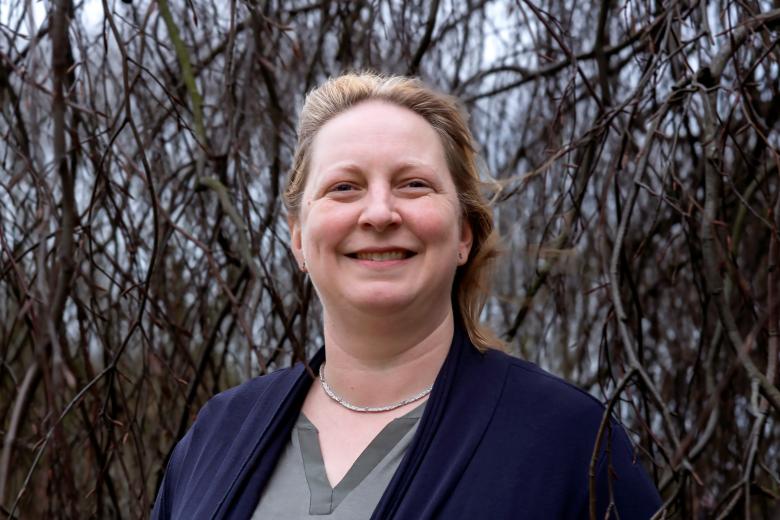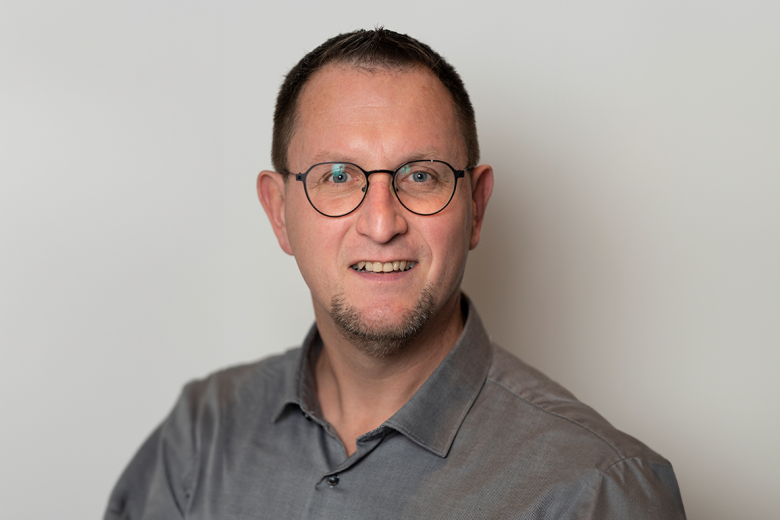NWO awards first ‘Stairway to Impact’ prize to Dr. Kateřina Staňková
The new NWO Science Domain awards recognize inspirational scientists in five categories, among which societal impact. Staňková receives the €50.000 cash prize for her contributions to mathematics-based cancer therapies.
Staňková is particularly effective at setting up the interdisciplinary collaborations needed to get her mathematical models to the clinic. These dynamic game theory models suggest that certain cancer patients can benefit from a rigorously different approach to treatment: applying smaller doses of drugs less frequently could extend their lives and improve their life quality. Although clinical trials are still ongoing, preliminary data suggests that these predictions are indeed true.
An inventive and unorthodox approach
Staňková’s focus on cancer therapy is a recent development. In 2015, the sudden death of a colleague ignited her desire to improve the lives and outlook of metastatic cancer patients. Since then, she has sought collaborations with physicians, oncologists and biologists to apply her game theoretical research to modelling the interactions between tumors and doctors. The US-based Moffitt Cancer Center is one of her closest collaborators; she unites many other partners through for example the European EvoGamesPlus consortium.
NWO-ENW Science Domain Awards
In the week of November 30, the Dutch Research Council (NWO)’s Domain Science (ENW) announces the winners of five newly established awards. Apart from societal impact, NWO-ENW recognizes team science, science communication, outstanding female researchers and diversity initiatives. Three researchers win this year's impact prize. Follow the announcements on Twitter
Video: NWO
These collaborations are crucial: the proposed therapy regimes can be counterintuitive and may diametrically oppose standard medical practices. Introducing them is therefore no easy feat. “Her inventive approach has enabled her to challenge paradigms”, the award jury said, and “her driven unorthodox approach has made her a role model for other researchers.”
Clear future plans
The jury also commended Staňková’s future ambitions. “She has a clear vision for the future”, they continued, “as she hopes to develop mathematical models that are not only tailored to patients, but also get refined during the treatment process.” The €50.000 prize is intended for creating more societal impact.
Staňková: “I am extremely honored to receive this prize. I perceive it as an acknowledgement of the team effort. I want to thank everyone in my team and all collaborators, in the Netherlands and abroad, who work with me on game theory of cancer and its treatment. With the prize money, I can create research pre-PhD positions and fund experiments that will improve the predictive capabilities of our mathematical models.”
Dr. Kateřina Staňková is an associate professor at the Department of Data Science and Knowledge Engineering. She was nominated by Prof. Thomas Cleij, dean of the Faculty of Science and Engineering, and by Prof. Rianne Letschert, rector magnificus of UM.
Also read
-
DigiMach: Digital Transformation of the Machining Value Chain for Sustainable Growth
DigiMach is a transnational 3-year collaborative approach that will transform manufacturing across the Meuse-Rhine region by bringing AI, IoT, and robotics to small and medium-sized enterprises in the machining sector. The project will assist more than 150 SMEs to adopt smart, digital tools, through...
-
Working at UM: “a life-changing experience”
"I am proud that our new Circular Plastics group published its first completely in-house research," Kim Ragaert says. She founded the research group three years ago, when she moved to Maastricht. Her work has laid the foundations for many innovations in the field of plastic recycling, and she is...
-
How does the universe taste?
Gerco Onderwater investigates the flavour of the universe while guarding the flavour of the Maastricht Science Programme. On 31 May, during his inaugural lecture, he provided a pre-taste of his work in Maastricht.